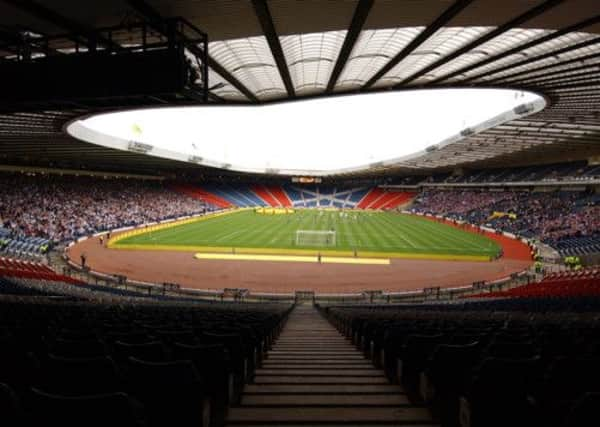SPL restructure: Clubs meet to discuss play-offs


Under discussion was the issue of play-offs, and while Neil Doncaster, the SPL chief executive, remains hopeful some consensus can be achieved next Tuesday, he admits that the cost-versus-benefit equation could be an obstacle to change, with clubs reluctant to commit to such a change without wealth re-distribution helping to soften the landing. This had been another strand of the reconstruction package rejected just over a fortnight ago.
“What you are effectively asking clubs to do is take on board additional financial risk of relegation but without all of the financial reward they would have had through reconstruction, so I think it is more difficult,” said Doncaster. “I think we need to recognise that going into next week’s meeting.”
Advertisement
Hide AdAdvertisement
Hide AdClubs remain concerned about how much financial risk they will expose themselves to if they agree to implement one of the four models under discussion ahead of next season, with one proposal based on a “Champions League group-stage style” idea that would involve the teams finishing tenth and 11th in the SPL, and those in second and third place in the First Division.
Each team would then play each other both at home and away, with the winners of the group either being promoted or staying in the SPL.
Proposals for a 12-12-18 system, with the top two leagues splitting into 8-8-8, the introduction of play-offs, revised financial distribution and the merging of the SPL and the Scottish Football League were rejected after Ross County and St Mirren voted against them.
However, after several of them initially dismissed the notion that some change could still be delivered ahead of next season, all SPL clubs met again yesterday to discuss four different play-off proposals and will reconvene next Tuesday to study the proposals in more detail.
“It remains a possibility, no more than that,” said Doncaster, after he presided over yet another meeting of SPL clubs. Talks lasted for more than three hours, while an SPL board meeting was also held afterwards. Although Dundee United chairman Stephen Thompson left the meeting before anyone else, and appeared to suggest clubs were no further forward in agreeing change as he stepped into a waiting taxi, Doncaster urged reporters not to read anything into this. “One or two people had other appointments,” he said.
David Southern, the Hearts managing director, was one of the next club officials to leave, along with George Campbell, the St Mirren vice-chairman. Controversial St Mirren chairman Stewart Gilmour was not present, and is believed to be on holiday. Stewart Milne, the Aberdeen owner who fiercely criticised Gilmour’s conduct at the last vote, was not present either. Chief executive Duncan Fraser represented the Pittodrie club.
“It was a broadly positive meeting,” said Southern, as he left. “We are all still talking and we are all moving in the right direction. There was no vote today, only discussion.
“Play-offs are very much still on the table.”
Other reforms were all but confirmed as having been written-off ahead of next season, however, including the merging of Scottish football’s three governing bodies. “I don’t
Advertisement
Hide AdAdvertisement
Hide Adthink it’s realistic to look at the implementation of a full package that involves a merger,” said Doncaster.
“It’s too difficult now to achieve that in time for next season. But if you’re working with the same divisional structure, 12-10-10-10, then you do have more time if clubs can agree on a play-off model. The issue is whether we can all agree on a play-off model that works that compensates for the extra risk that they are taking on. It’s less about time.”
Pressed on whether self-interest was again likely to block progress, Doncaster said he could understand if this was the perception outside the walls of the SPL boardroom. However, chairmen and owners have a responsibility to the club’s supporters and shareholders first and foremost, the argument that was employed by Ross County and St Mirren when they voted against league reconstruction earlier this month. “From the outside looking in, that’s how it must appear,” said Doncaster, on the question of self-interest.
“But if you put yourself in the shoes of a chairman of a club, they have a responsibility to that club first and foremost.
“While they also have a responsibility to the league and the game as a whole their first priority has to be their club. If you’re asking a club to take on more risk, each chairman has to understand absolutely clearly and fully what that risk is and what potential financial reward they might get for taking that risk.
“It’s only appropriate that clubs have more time to take everything on board and consult with their board of directors on this matter.”
“Common good is an influencing factor for the chairmen but so is their own club,” he added.
“All chairmen have to achieve that balance. They have a legal responsibility to their own club that they cannot forget.”